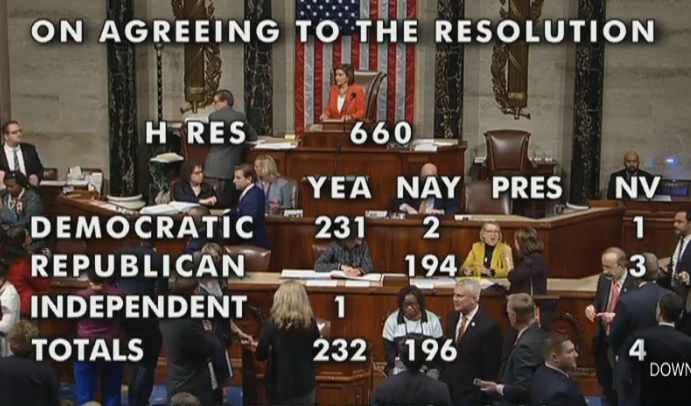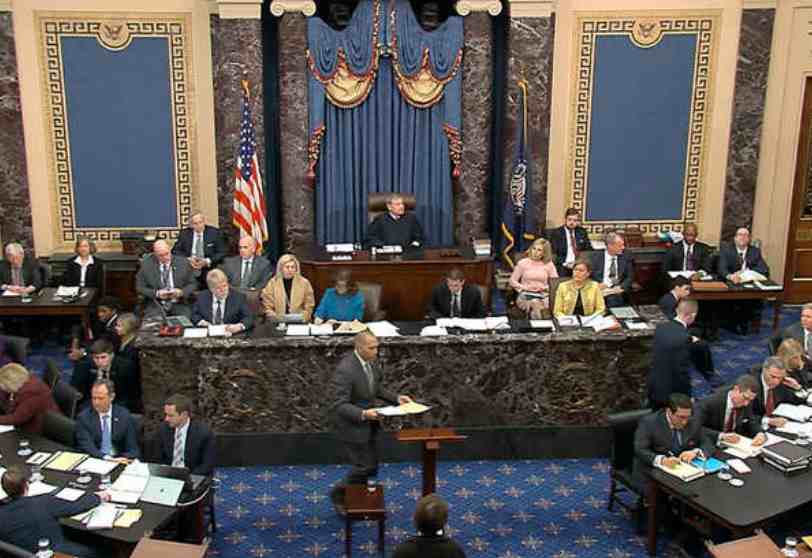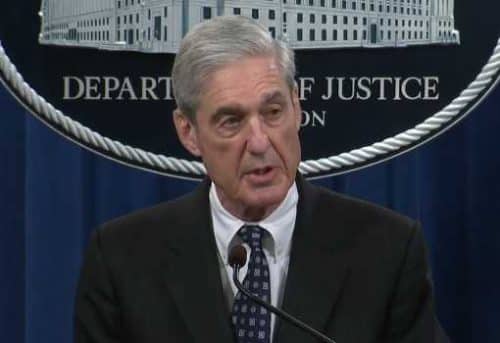WASHINGTON — Opposition Democrats have long been united in their dislike of President Donald Trump. But when it comes to the idea of trying to impeach the president and remove him from office, Democrats, it seems, are sharply divided.
Massachusetts Senator Elizabeth Warren, a presidential candidate, is leading the charge for impeachment among the Democratic White House contenders.
Warren told a CNN-televised town hall featuring five Democratic hopefuls Monday that if anyone else in the country had done what is documented in the recently released report from special counsel Robert Mueller on Russian interference in the 2016 election, “They would be arrested and put in jail.”
Joining Warren in supporting the call for impeachment was California Senator Kamala Harris, a former prosecutor, who said the Mueller report “tells us that this president and his administration engaged in obstruction of justice.”
But the Democratic presidential candidates are far from unified on the issue. Other candidates have been more circumspect, including Pete Buttigieg, mayor of South Bend, Indiana.
“I think that Congress needs to make that decision and I think he may well deserve it,” Buttigieg told reporters on the campaign trail in Massachusetts. “But my focus, since I am not part of Congress but I am part of 2020 [campaign], is to give him a decisive defeat at the ballot box.”
The newest entrant in the 2020 race, Democratic Congressman Seth Moulton of Massachusetts, said he would support at least beginning impeachment hearings for Trump.
“I think we should have been doing this for a while, having this debate and getting it out in public and having this discussion with the American people about whether or not the president committed crimes,” Moulton told ABC’s Good Morning America.
The Democratic field of nearly 20 will grow by one more Thursday, when former Vice President Joe Biden is expected to make his formal announcement with an online video.
[content id=”79272″]
Mueller Report Fallout
The impeachment question is front and center among Democrats following last week’s release of the redacted Mueller report. Mueller concluded there was insufficient evidence to establish a criminal conspiracy between the Trump campaign and Russia.
But the special counsel was unable to render a judgment on whether the president obstructed justice during the Russia probe, conducted by federal prosecutors. That decision was made by Attorney General William Barr, who determined that the numerous instances detailed in the report of Trump trying to interfere or influence the investigation did not amount to criminal conduct.
House Speaker Nancy Pelosi of California made it clear to Democrats in a conference call Monday evening that she opposes going down the impeachment road, at least for now.
In a letter to fellow Democrats, Pelosi wrote that while it is “important to know the facts regarding holding the president accountable,” it can be done outside of holding impeachment hearings.
Pelosi and other Democratic congressional leaders hold a very cautious view of impeachment, according to Julie Pace, an analyst and Washington bureau chief for the Associated Press.
“She feels that in order to move forward on impeachment, you have to not only have really solid evidence of an impeachable offense, you also have to be able to bring not just Democrats but also Republicans on board,” Pace said.
Republicans: Move On
There seems little prospect of Republicans joining any impeachment effort. The common refrain, whether it be from Senate Majority Leader Mitch McConnell of Kentucky or Republican Senator Roy Blunt of Missouri, is it is time to move past the Mueller report.
“The top line of the report will be reflected by the report itself, which means no collusion, no obstruction, and I think generally people are ready to move on,” Blunt said.
Moving to impeach the president could satisfy those Democrats outraged by what they read in the Mueller report. But it could also prove to be a major political distraction for a party looking to defeat Trump in next year’s presidential election.
“Is the best thing for the country to take up an impeachment proceeding because to do otherwise sends the message that this conduct is somehow compatible with office?” House Intelligence Committee Chairman Adam Schiff asked on ABC’s This Week on Sunday. “Or is it in the best interest of the country not to take up an impeachment that we know will not be successful in the Senate, because the Republican leadership will not do its duty?”
Risk vs. Reward
Democrats hold a majority in the House and could impeach Trump on a simple majority vote. But it would then be up to the Republican-controlled Senate to hold an impeachment trial, where removal from office requires the support of 67 out of the 100 senators — an unlikely prospect with Republicans remaining loyal to the president.
And even those Democrats who support impeachment concede it would be a lengthy and politically risky process.
“By the time impeachment proceedings were even to ramp up, you are talking about the end, maybe, of 2019 or early 2020, and that creates its own complication because there is another remedy for removing a president, and it is called the election,” George Washington University political expert Matt Dallek said.
Trump: No Worries
Trump told reporters Monday he was “not even a little bit” worried about Democratic impeachment efforts. Trump also tweeted, “There were no crimes by me (No Collusion, No Obstruction), so you can’t impeach.”
Trump apparently believes that his political standing has been strengthened following the release of the Mueller report, said analyst John Fortier of the Bipartisan Policy Center in Washington.
“I don’t think it is over and we will keep talking about it. But I think the top line was what the president wanted to hear, that there was no collusion between the Trump campaign and Trump himself and the Russian government.”
But Trump’s approval rating has taken a hit in some recent polls conducted since the release of the redacted report. Thirty-nine percent of voters approve of the president in the latest Politico/Morning Consult poll, while 57 percent disapprove. That is a drop of 5 points in his approval rating in the same poll from last week before the release of the report.
However, the same poll found that only 34 percent would support beginning impeachment proceedings of Trump, while 48 percent opposed the move. The survey has found that Democratic support for impeachment has dropped by 12 points since January. Many other polls in recent months have also found more voters opposed to impeachment than supportive of it.
Even if Democrats do hold off on impeachment, the Mueller report is still likely to get plenty of attention from Democratic presidential contenders throughout the 2020 election cycle.
Jim Malone has served as VOA’s National correspondent covering U.S. elections and politics since 1995.
Source: VOA








